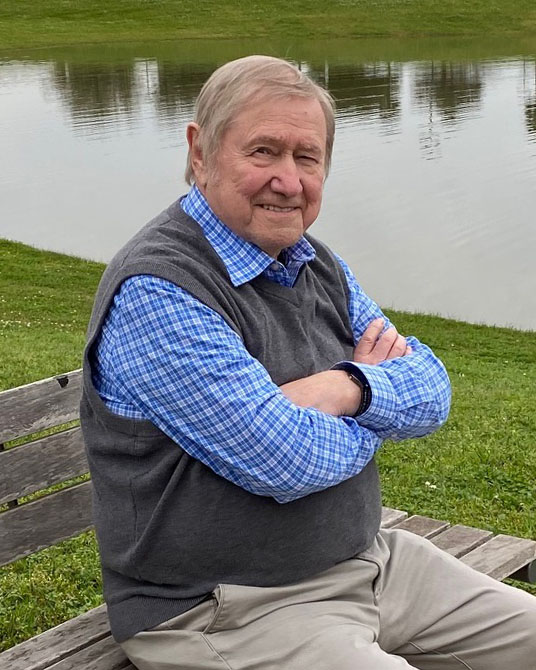On January 30 following a courageous struggle with a number of health issues, Professor Yuri Alexeevich Kuznetsov passed away. He was 78 years old. He will be remembered as a brilliant mathematician, a wonderful collaborator, a renowned teacher, a colleague, and a dear friend.

Professor Kuznetsov, a faculty member in the University of Houston Department of Mathematics, held the M.D. Anderson Chair of Mathematics. Broadly speaking, his area of research was computational applied mathematics. Without exaggeration one could say that in the late 20th and early 21st century, Yuri was internationally recognized as one of the preeminent mathematicians in the field.
Yuri was born in the small Russian village of Shuksan located in the Penza region on August 7, 1945. He graduated from high school in 1962 and enrolled in Novosibirsk State University majoring in Physics. He graduated from Novosibirsk in 1967 and successfully defended his Ph.D. dissertation in 1969. In his innovative dissertation, Yuri developed the theory of iterative methods in subspaces which is still in use today and is commonly known as the GMRES (the generalized minimal residual method).
His work on iterative methods and quadratic functionals quickly attracted international attention. As early as 1971, he was invited to speak in France by the French Academician J. L. Lions. In 1972, he co-authored the impactful monograph, “Iterative Methods and Quadratic Functionals,” with the Russian Academician G. I. Marchuk It was later published in French in 1974.
From the later 1970s through the 1990s, Yuri’s activity concentrated on the development and investigation of new numerical technologies based on fictitious domain, domain decomposition, algebraic multigrid/multi-level sub structuring methods, and their combinations for efficient numerical solution of partial differential equations. In recognition of his contribution to the theory of iterative methods as well as to the development of fictitious domain and domain decomposition methods, he was invited in 1983 to deliver a lecture at the section of numerical analysis of the International Congress of Mathematicians in Poland.
In 1980, Yuri moved from Novosibirsk to Moscow where he became one of the founders of the Institute of Numerical Analysis of the Russian Academy of Science. In Moscow, his international reputation as a leader in the effort to compute solutions to partial differential equations continued to grow.
Because the sophisticated computational infrastructure available in the former Soviet Union lagged behind what was available in Western Europe and North America, his methods needed to be cleverer and more efficient than those of his Western counterparts. He was able to assemble a team of young scientists capable of capitalizing on his innovations and implementing his algorithms on the computational machinery then available.
Yuri’s role as one of the founders of the East-West Journal of Mathematics (currently the Journal of Numerical Mathematics) is symbolic of his long efforts to facilitate communication between Western and Soviet mathematical scientists. This effort required not only vision but also energy and courage. In the 1970s, he was a member of a high-level delegation of Russians visiting France. In turn, he organized and planned a reciprocal visit of a French delegation to Moscow. By the 1990s, Yuri’s established reputation had allowed him to work with a Western European network to organize numerous important conferences, workshops, and meetings.
In 1997, Yuri Kuznetsov accepted the invitation to join the Department of Mathematics at UH. The invitation was initiated by the famous applied and computational mathematician Roland Glowinski. At the same time, he remained an active member of the Institute of Numerical Mathematics in Moscow, participating in various research and applied projects. Yuri chose Houston over competing offers from Rome, Milan, Pavia, Prague, Tokyo, Nijmegen, Lyon, Jyvaskyla, and Augsburg, as well as New York, Los Angeles, Palo Alto, Austin, West Lafayette, and College Station.
His scientific activity in Houston mirrors the activity he had in Moscow. He recruited an outstanding group of graduate students, assembled a team of young scientists, expanded his network to include many of the most prominent researchers in the United States, and hosted a steady stream of distinguished visitors.
He continued to produce highly innovative work at UH focusing his research on the development and investigation of new discretization methods and preconditioned iterative methods for numerical solution of partial differential equations with applications to geophysics and energy related research. He was able to draw continuous support from federal agencies and from the oil and gas industry. He was extremely generous with this funding and with chair funding to support various activities.
More than 30 Ph.D. students defended their theses under his supervision. His former students successfully work in universities, research laboratories, and industry in Russia, the U.S., Germany, Finland, Israel, and other countries.
Yuri’s contribution to numerical and computational mathematics, and to international cooperation and understanding is difficult to overestimate. He strengthened existing links and created several new cooperative research projects between Russian scientists and scientists in France, the U.S., Italy, Germany, Bulgaria, Czechoslovakia, and Finland. He was a member of editorial boards of leading international journals on computational and applied mathematics, and a member of program committees of several major international conferences.
Professor Kuznetsov is predeceased by his parents Alexei Kuznetsov and Zoya Kuznetsova, and his sister Tatiana. He is survived by Ludmila, his wife of 58 years, his daughter Tatiana Kuznetsova, and three grandchildren Yurii Akimov, Kirill Akimov, and Veronika Akimova.
An event celebrating the life of Professor Kuznetsov will be held at the A.D. Bruce Chapel on Friday, May 3. The doors of the chapel will open at 3:30 p.m. for a period of reflection with the ceremony beginning at 4:00 p.m. A reception at the Hilton University of Houston will be held after the event.